
An hour before sunset in October 1815, a man traveling on foot entered a little town in France.
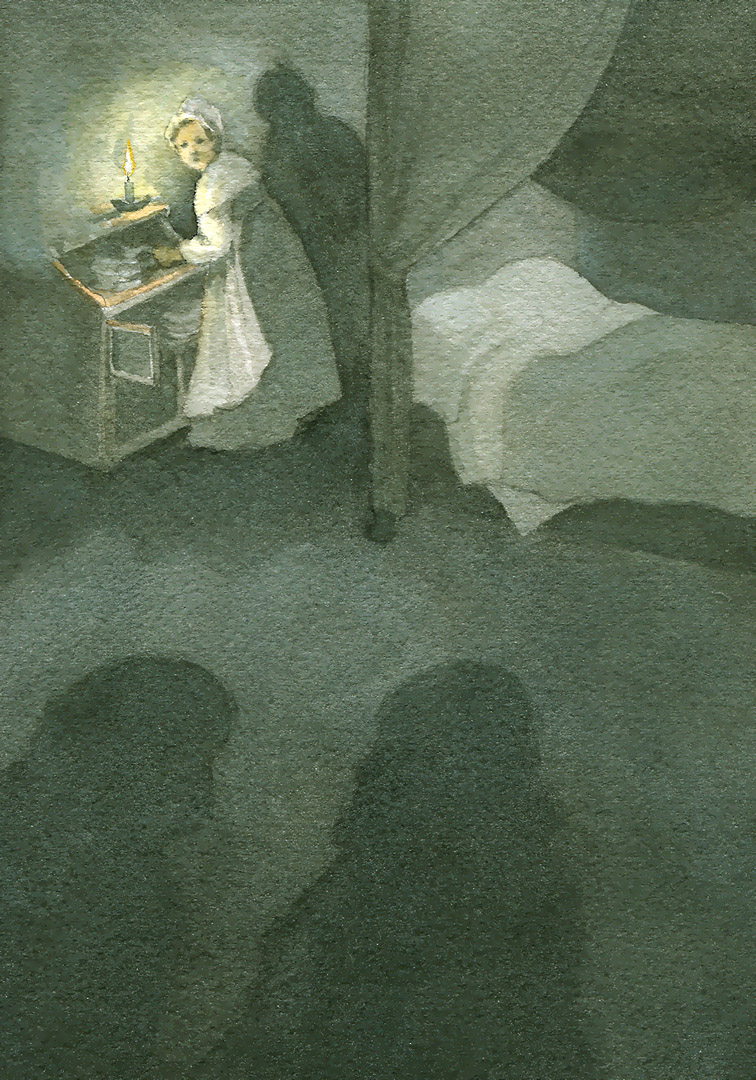
As they passed through the bishop’s room, Madame Magloire was putting away the silver in the cupboard behind the bed.
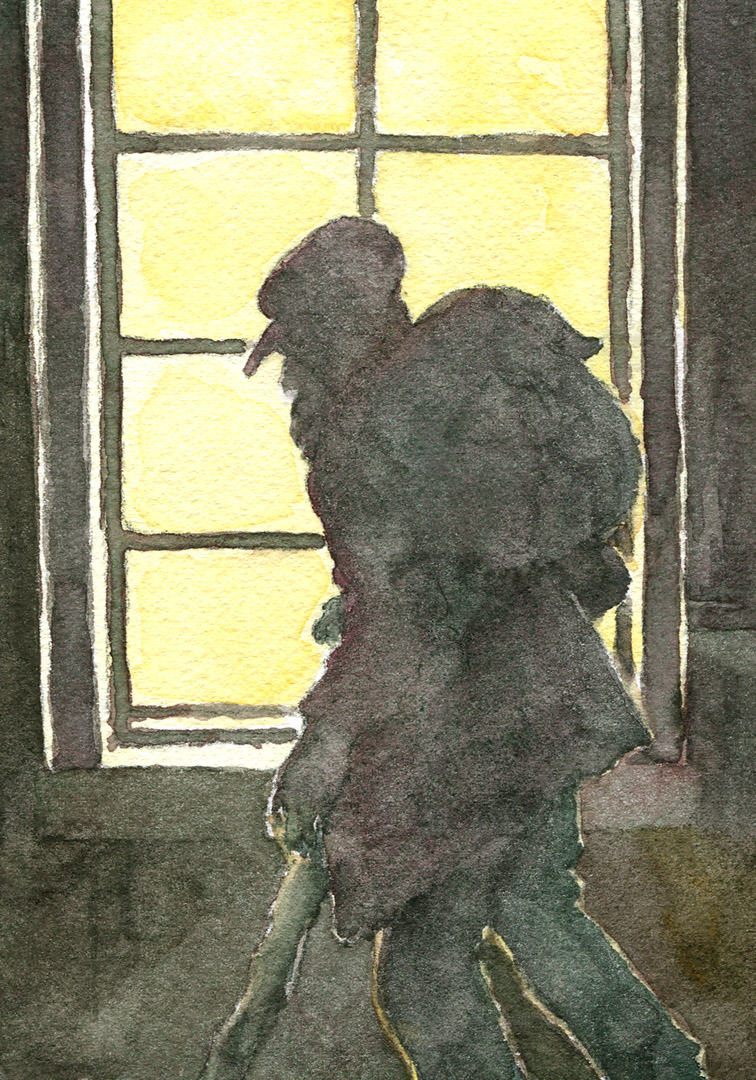
He walked through the town, stopping to ask for food and lodgings at a tavern, but no one would let him in.
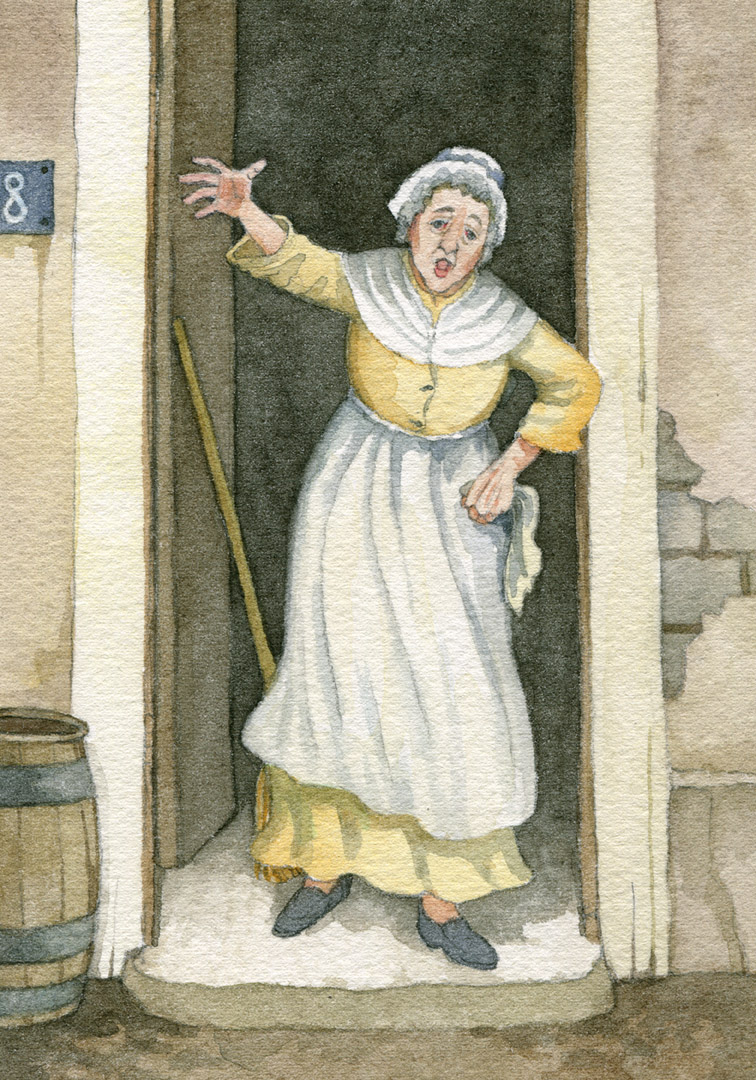
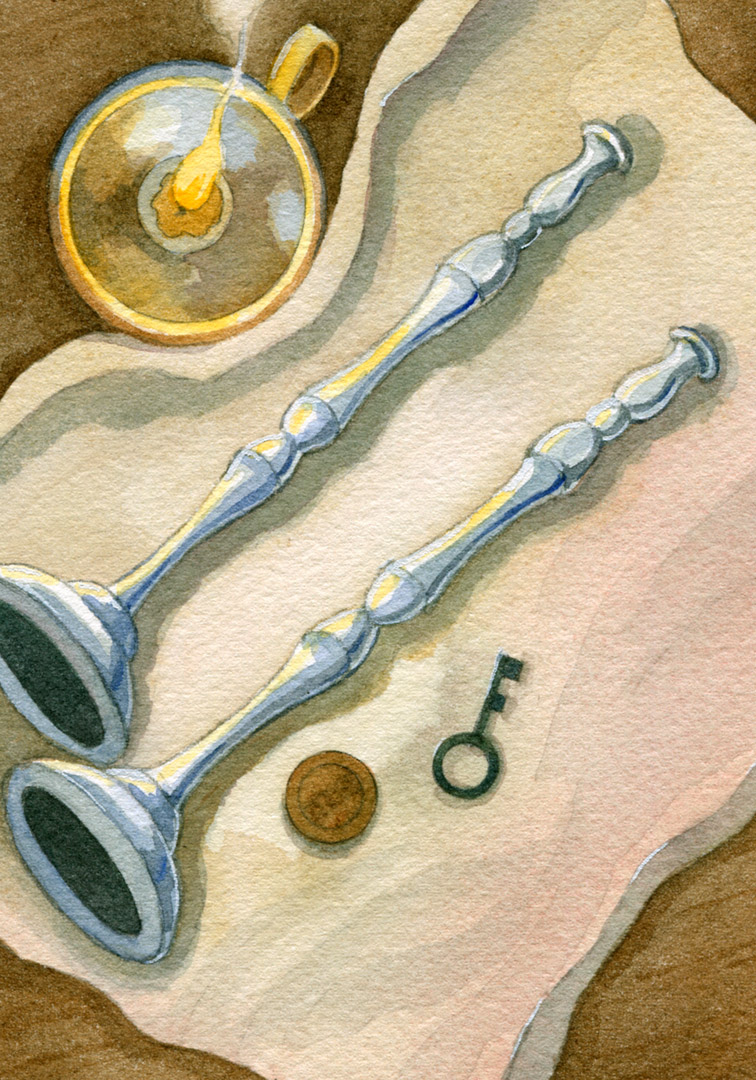
“Never forget that you’ve promised me to use this silver to become an honest man.”
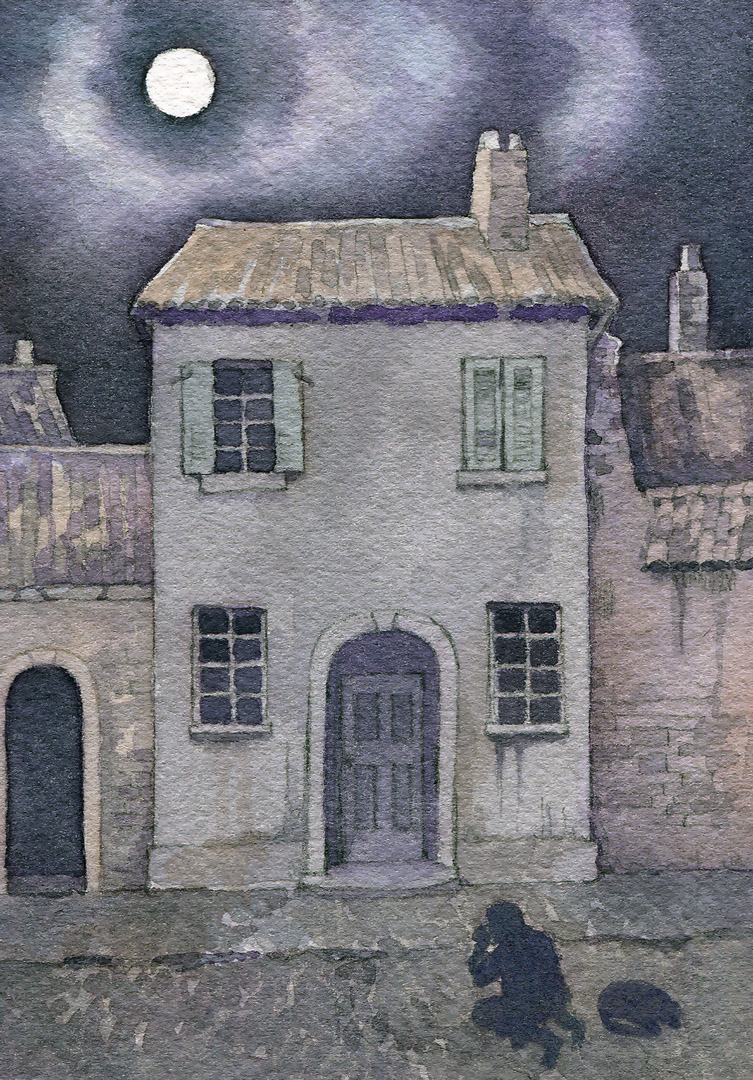
When the church clock chimed three on that morning, he was kneeling in prayer at the bishop’s door.
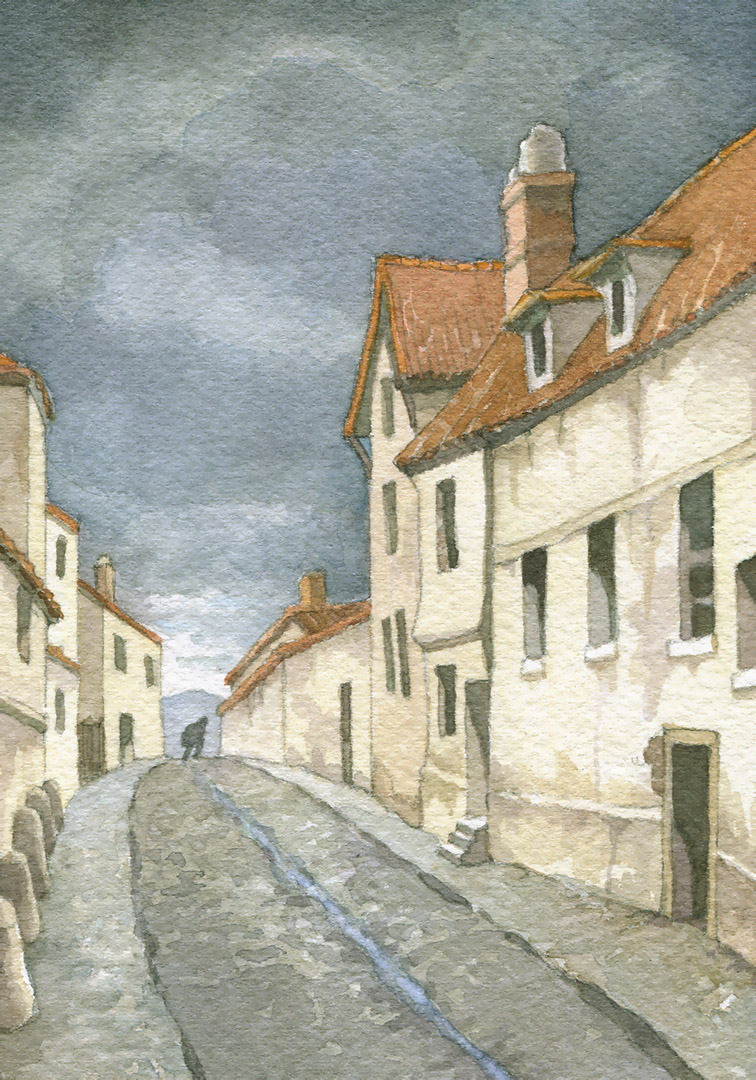
He fled from the bishop’s house and the town as fast as he could.
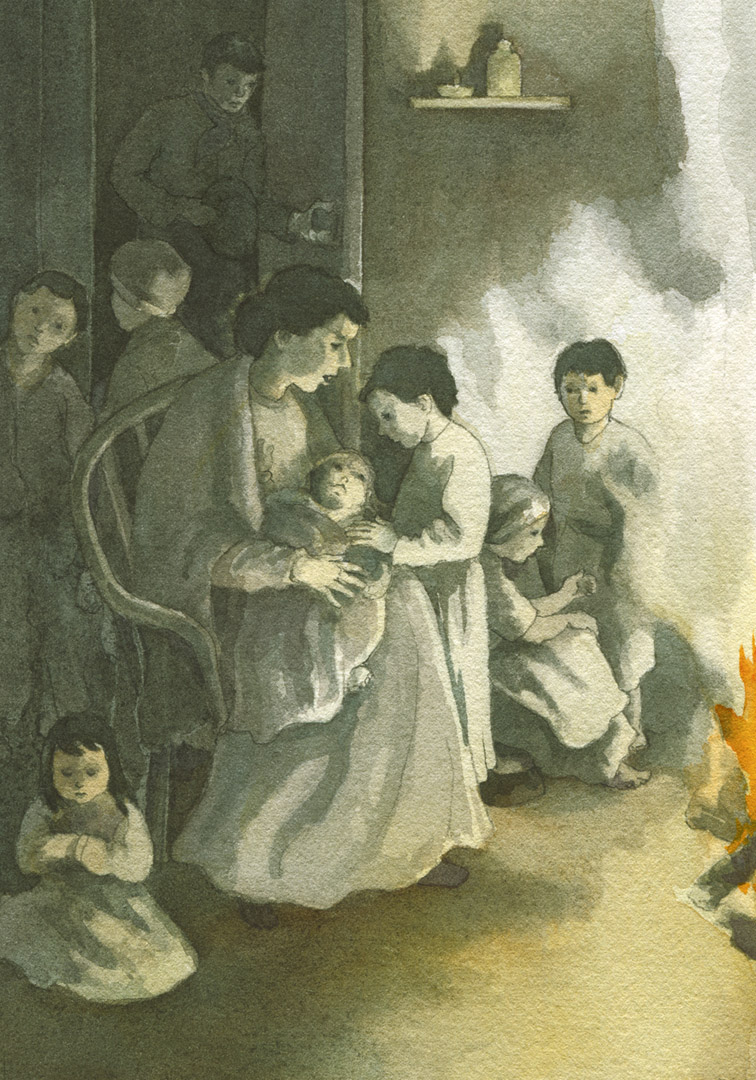
When her husband died, she had seven children ranging in age from one to eight.
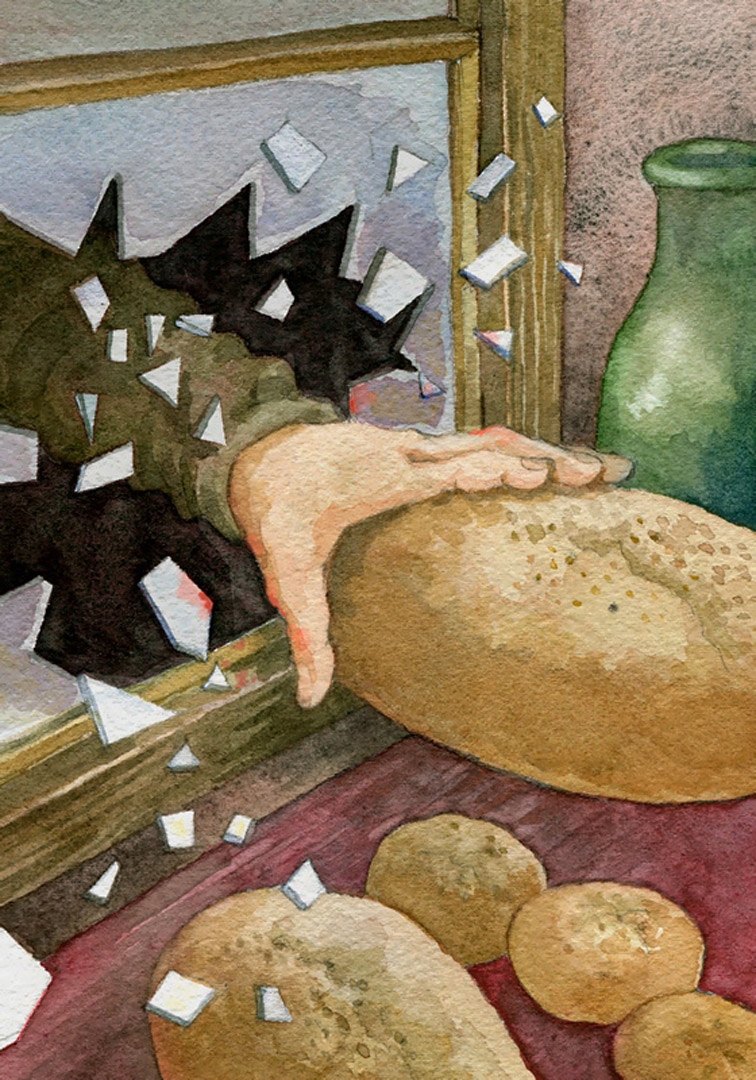
Jean Valjean stole a loaf of bread for the children.
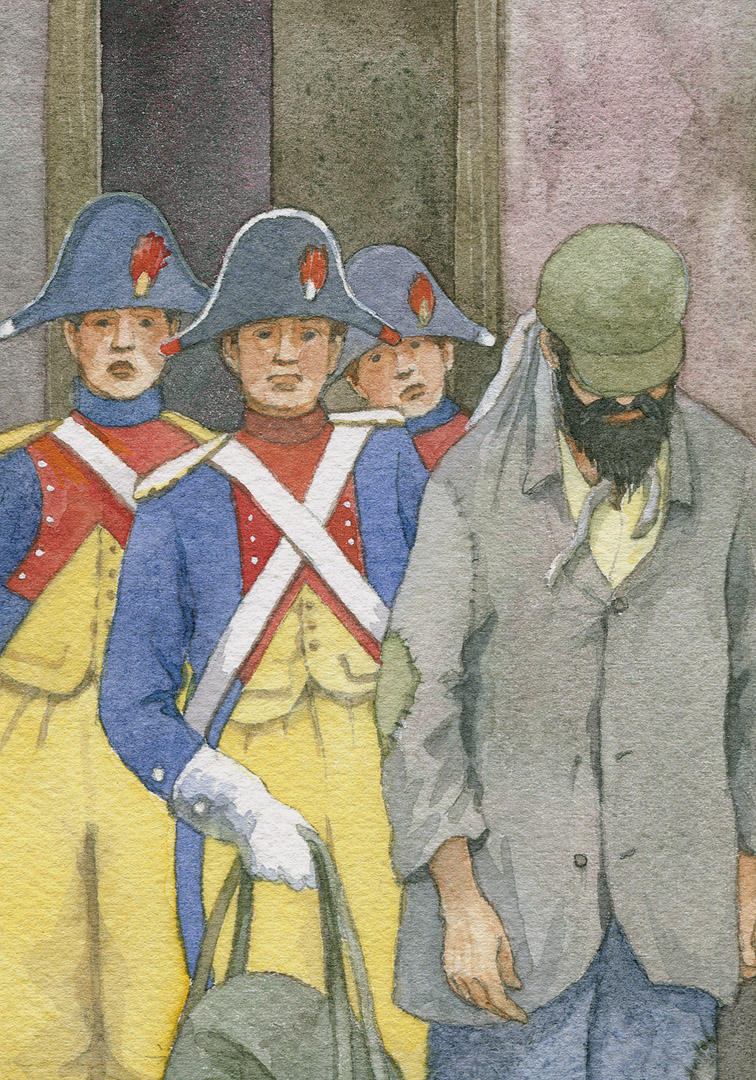
The door opened and there stood three policemen. One held Jean Valjean by his collar.
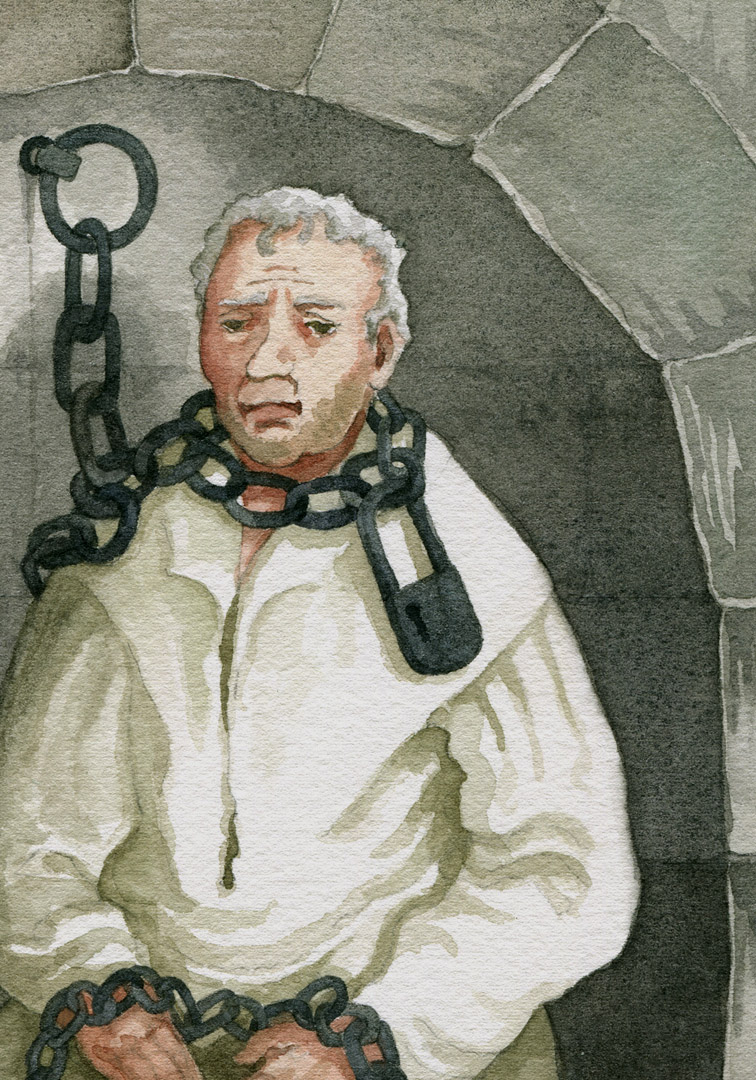
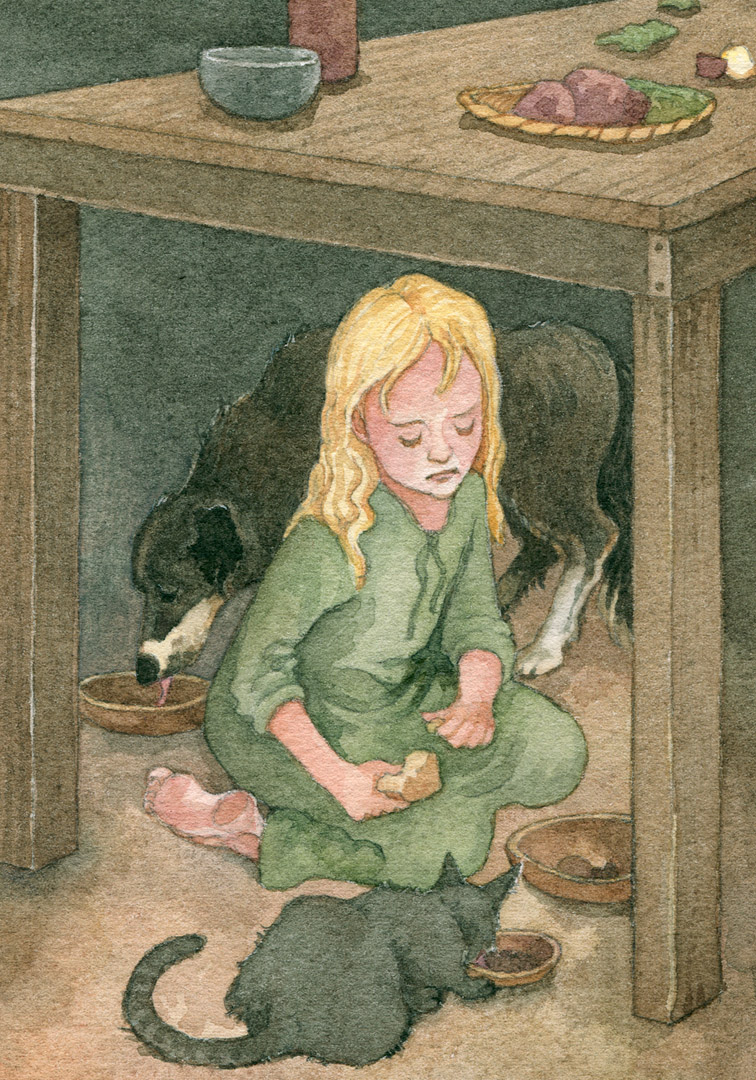
Cosette ate under the table with the dog and the cat.
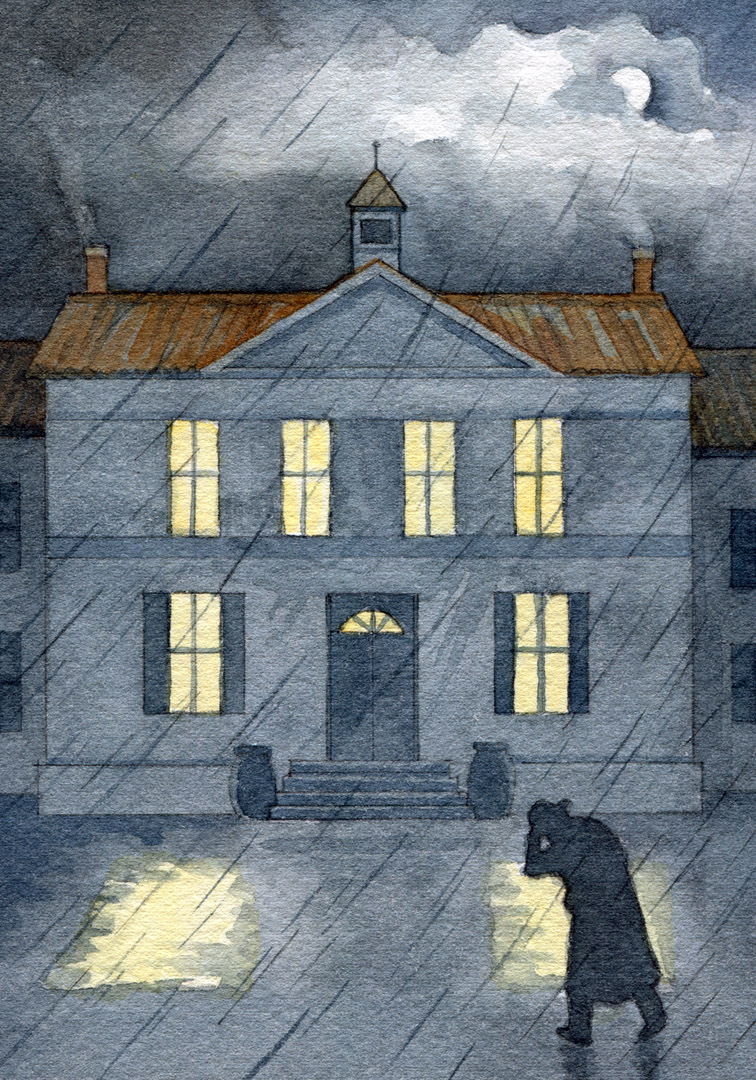
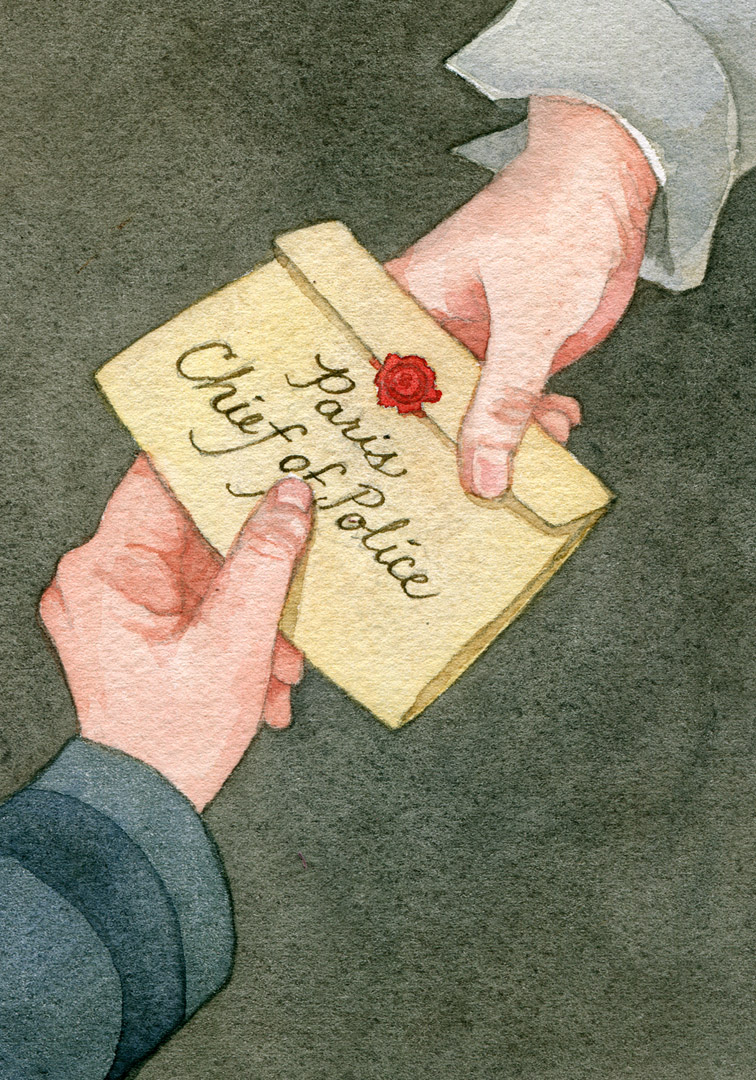
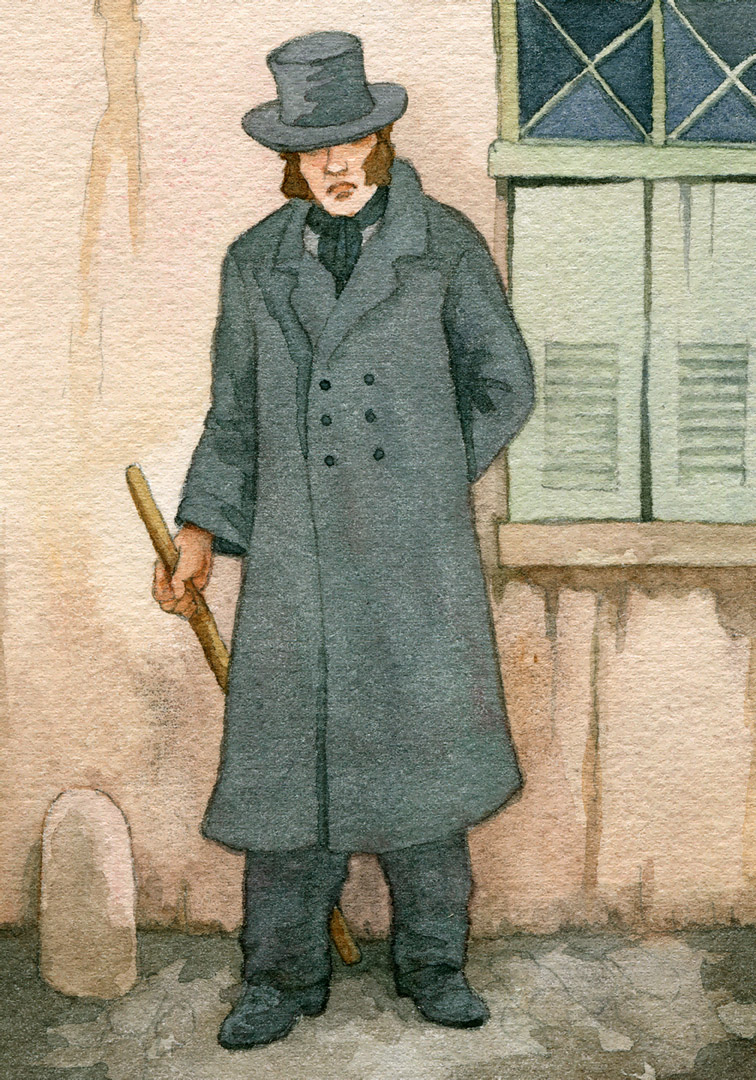
Javert always kept an eye on Mayor Madeleine, an eye full of suspicion and speculation.
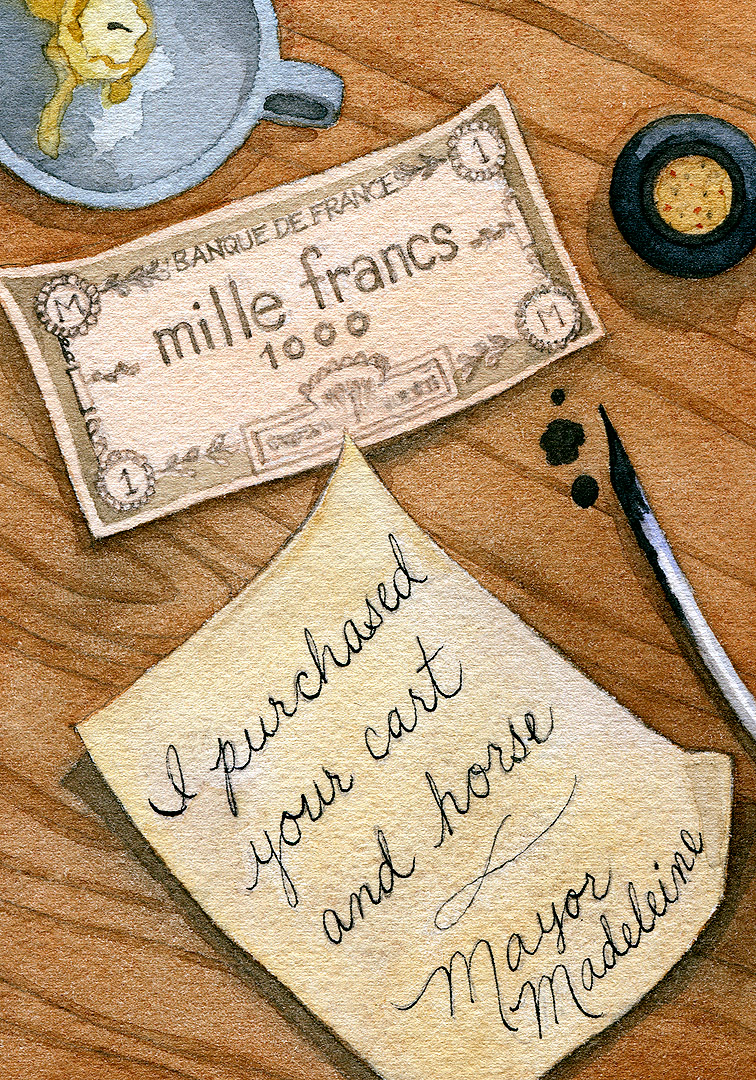
When the old man woke up the next morning, he found money on the bedside table.
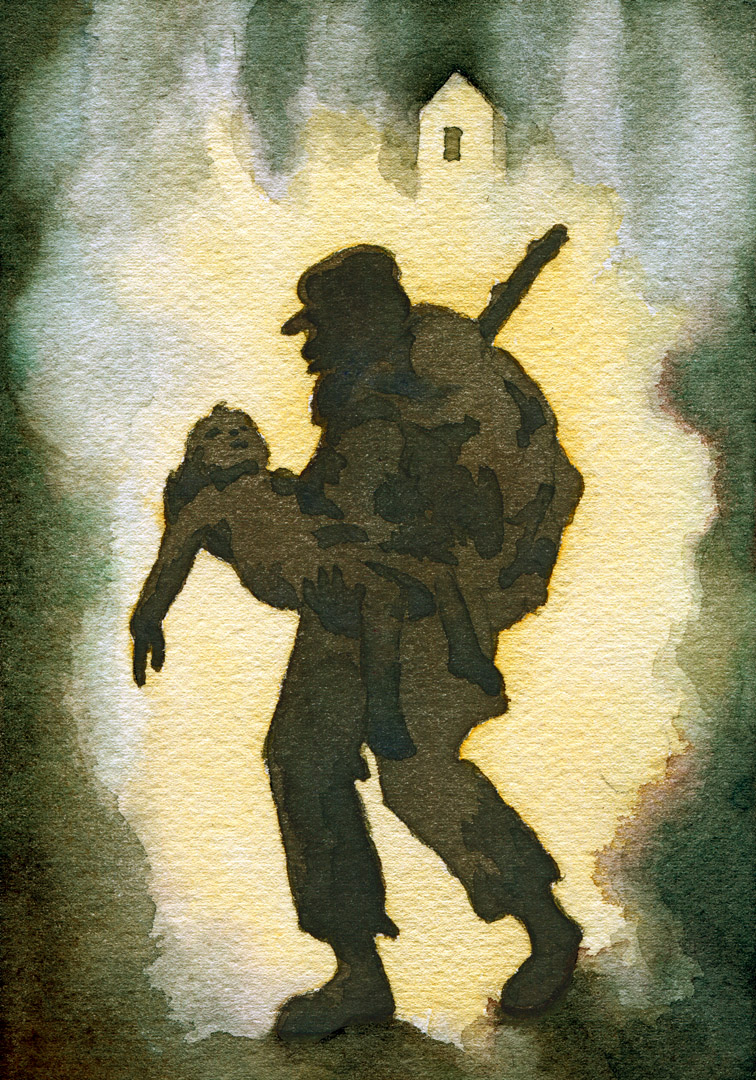
The man rushed into the building and risked his life to save two children—the police chief’s children.
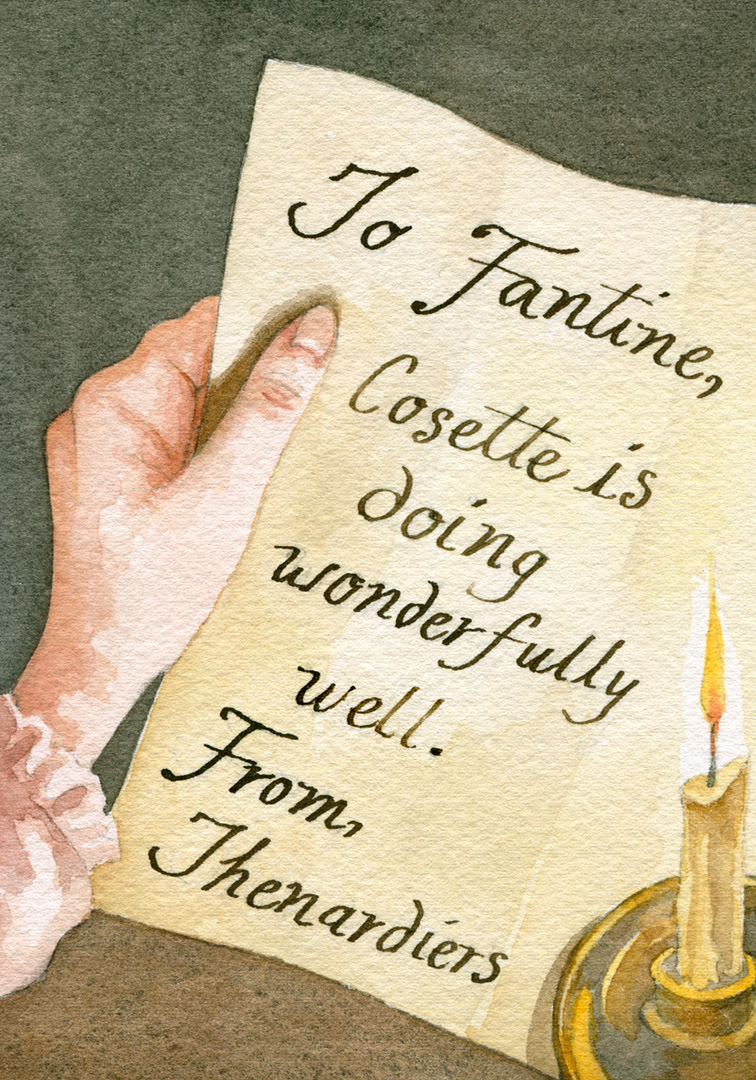
The Thenardiers reply was always the same: Cosette is doing wonderfully well.
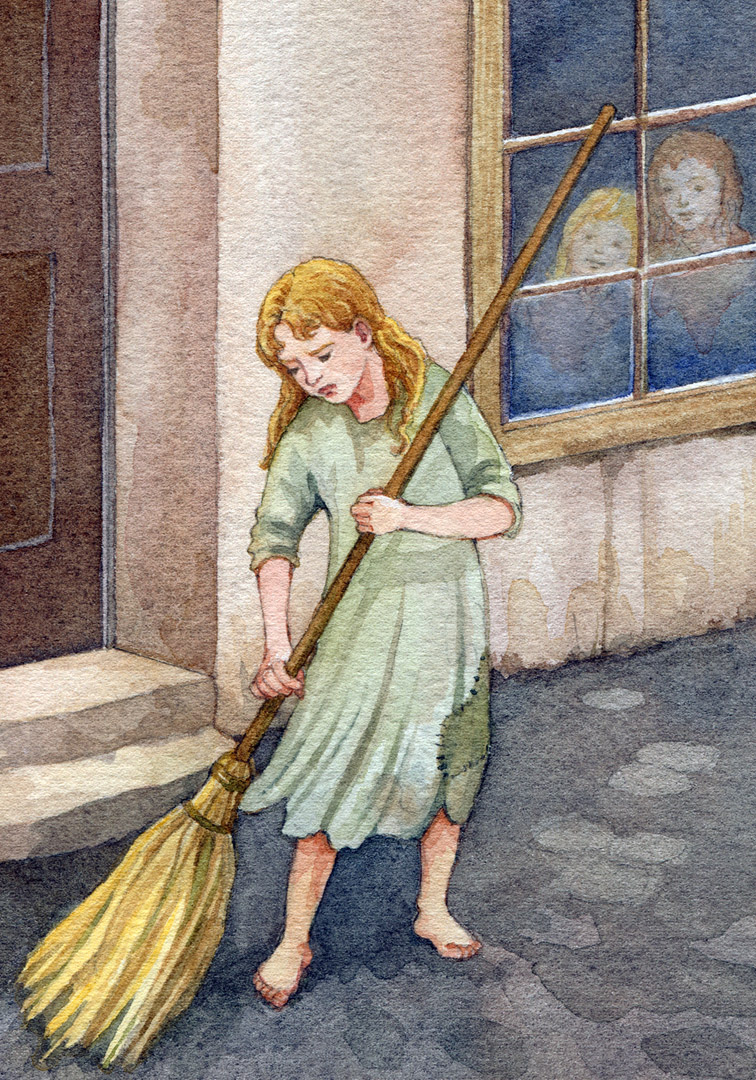
She was a miserable sight to see in the winter, sweeping the sidewalk before daybreak.
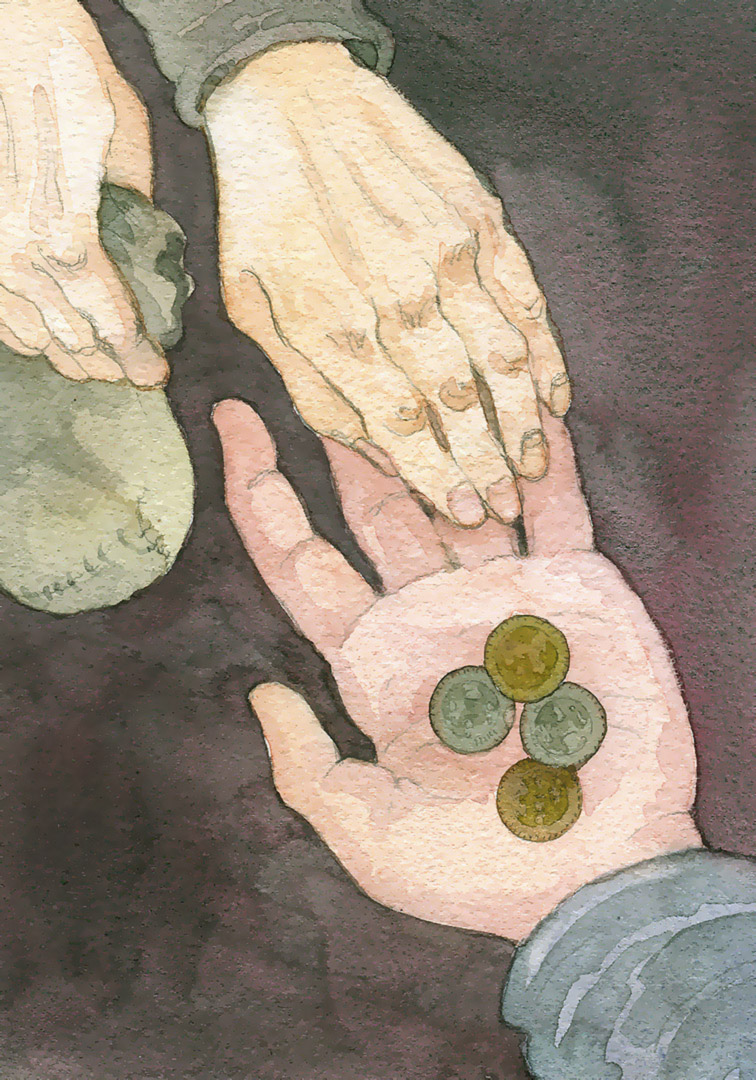
“Take these and knock on that door over there.”
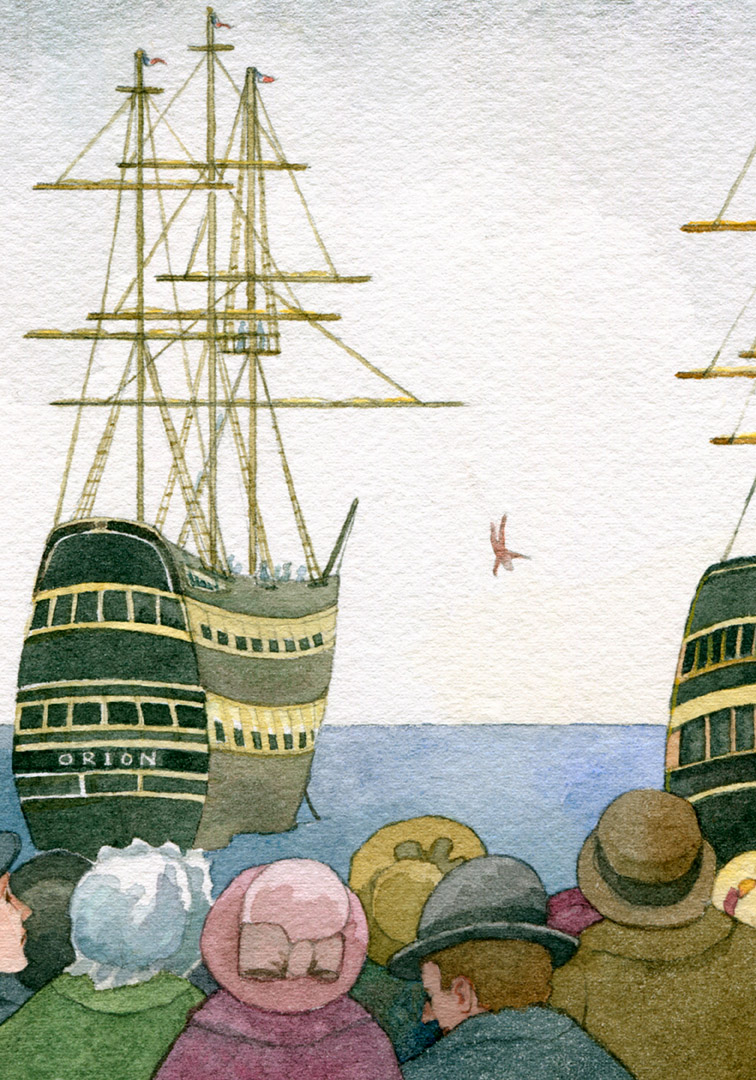
Suddenly the crowd cried out in horror. The convict had fallen into the sea!
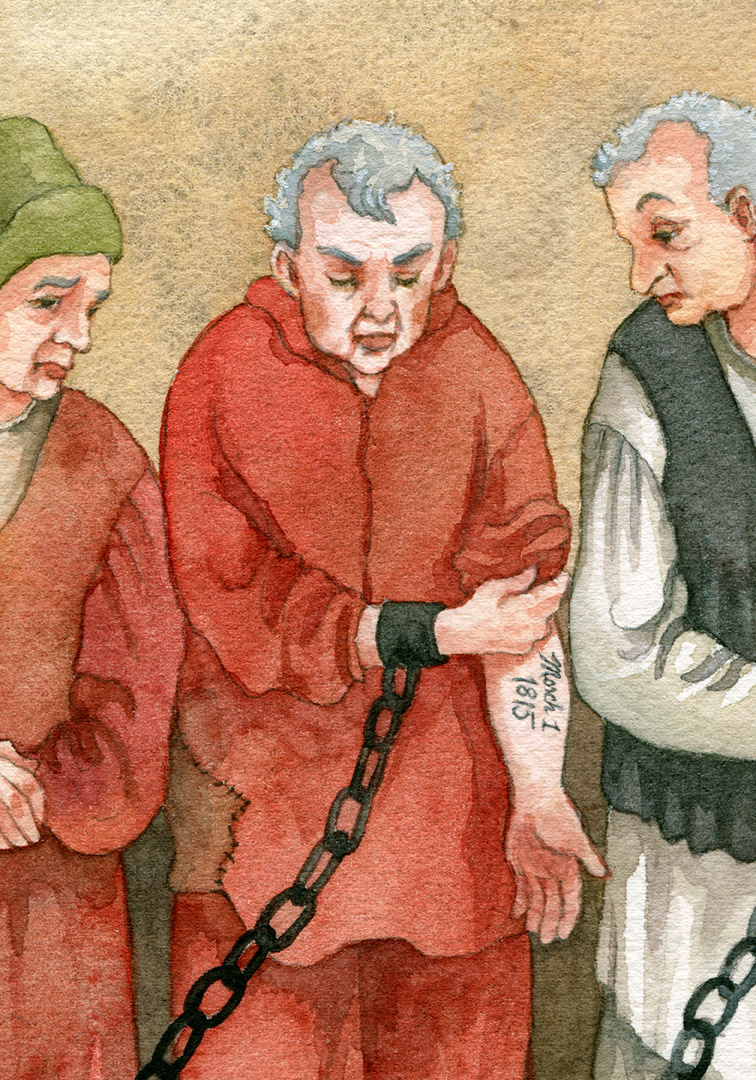
“And, Cochepaille, you have a blue tattoo on your left arm with the date March 1, 1815.”
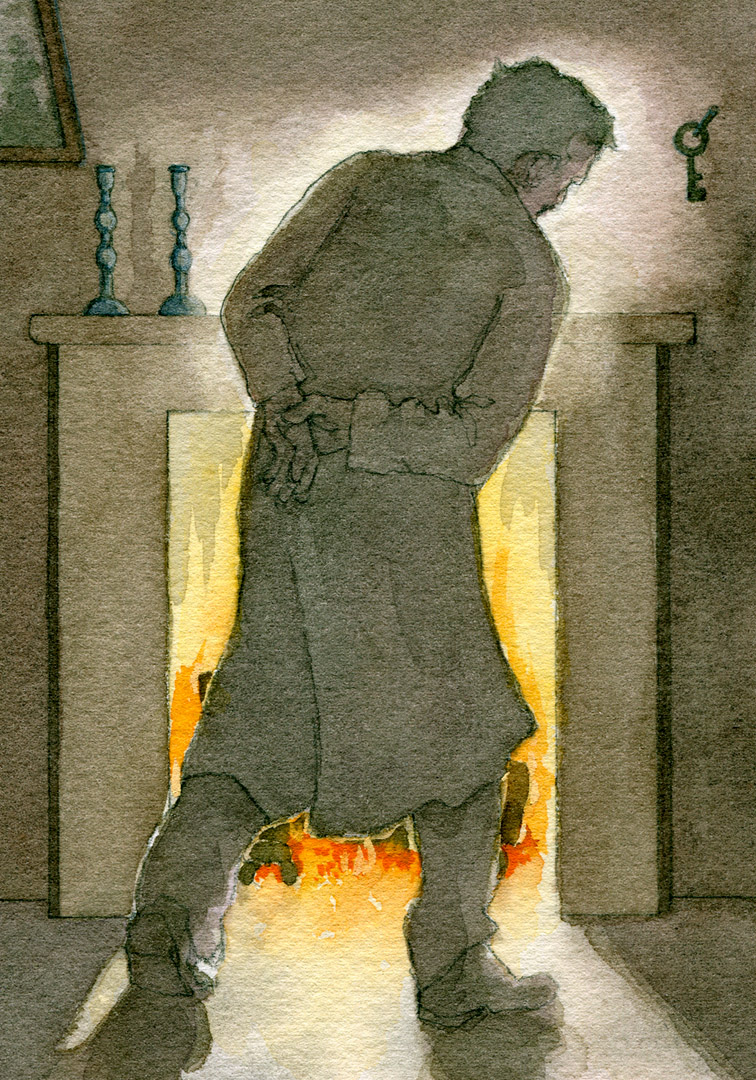
For five hours the mayor paced in front of the fire.
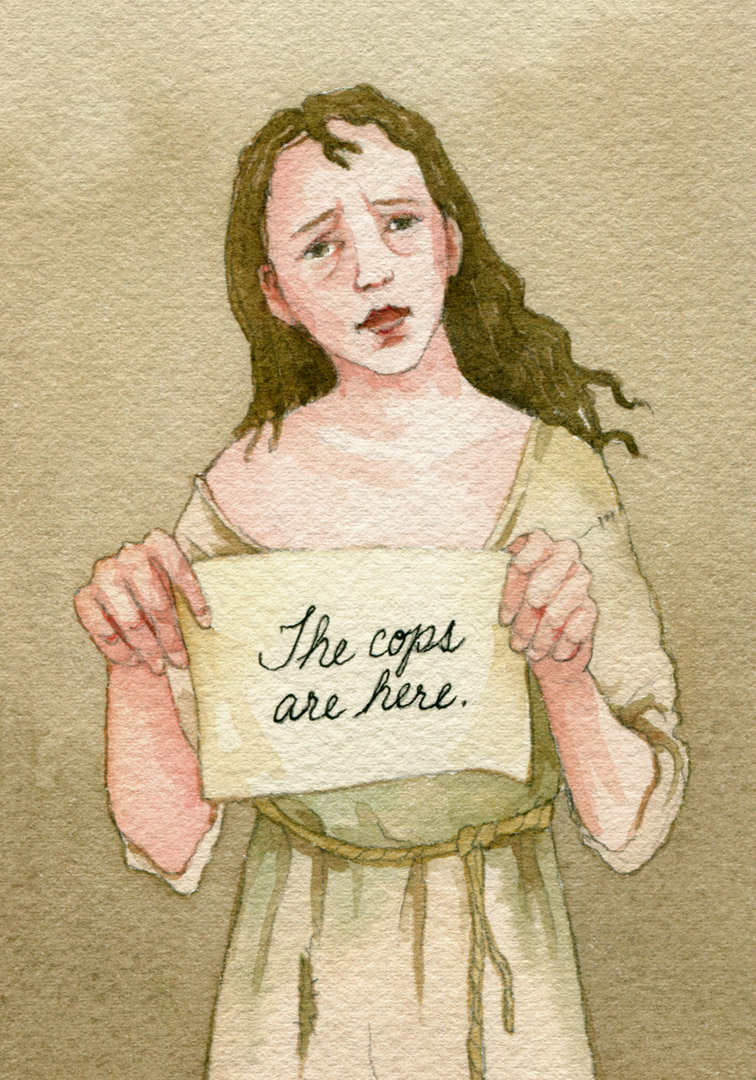
Throwing down the pen, she said, “Look at this!
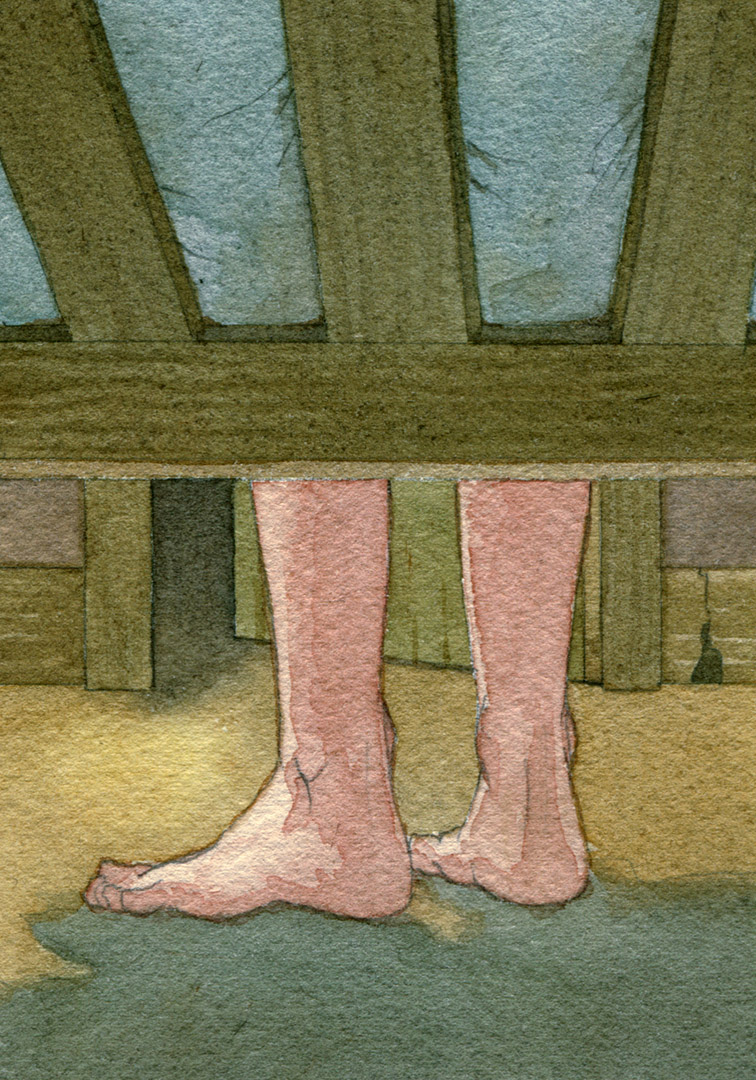
Eponine entered the room with a candle and walked straight toward the bed—but she didn’t look under it.
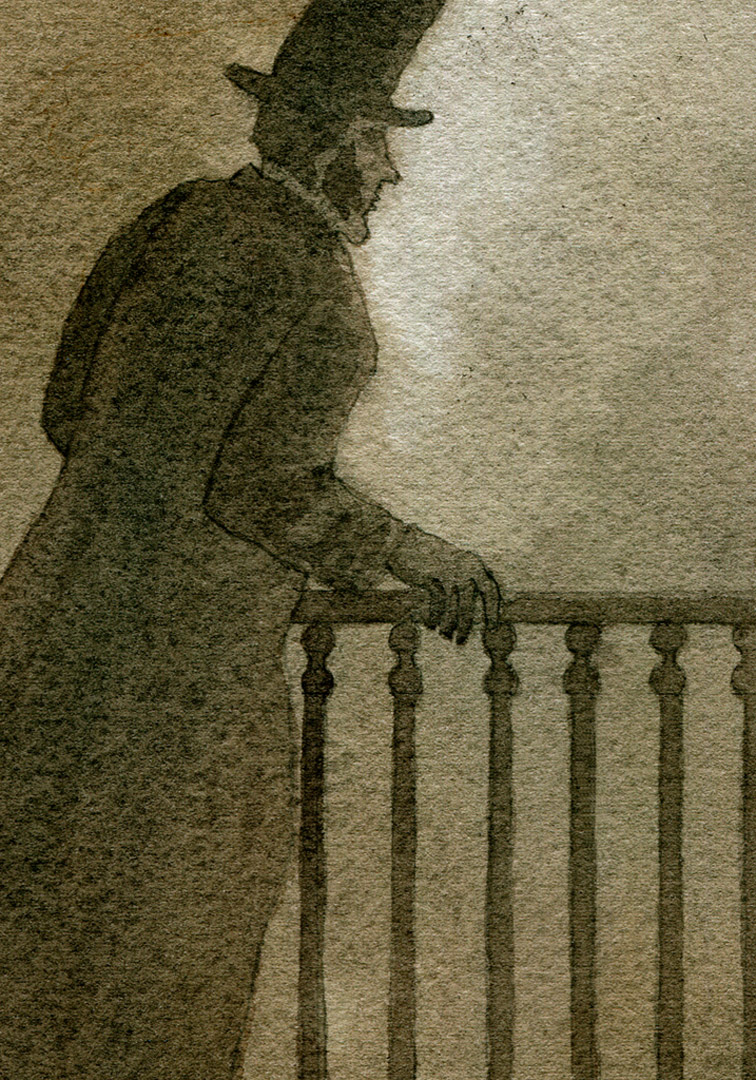
As the man reached the stairs, he turned and Valjean saw his profile!
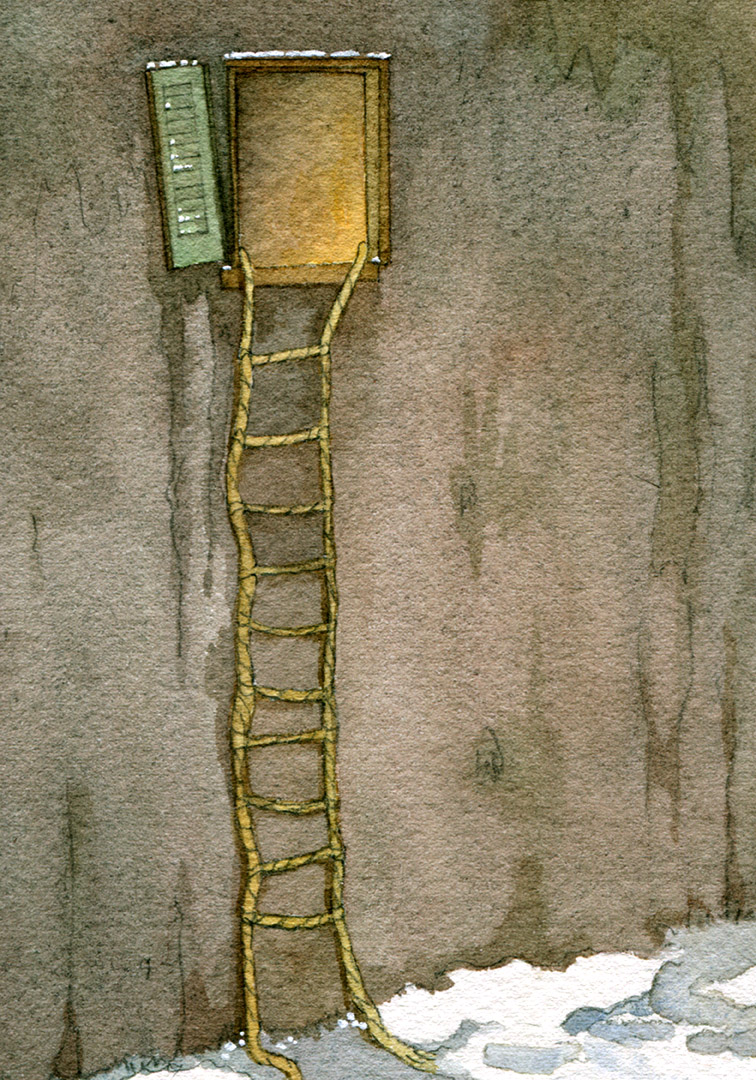
An officer ran to the window, where the rope ladder was still trembling. “He seems to have escaped, sir.”
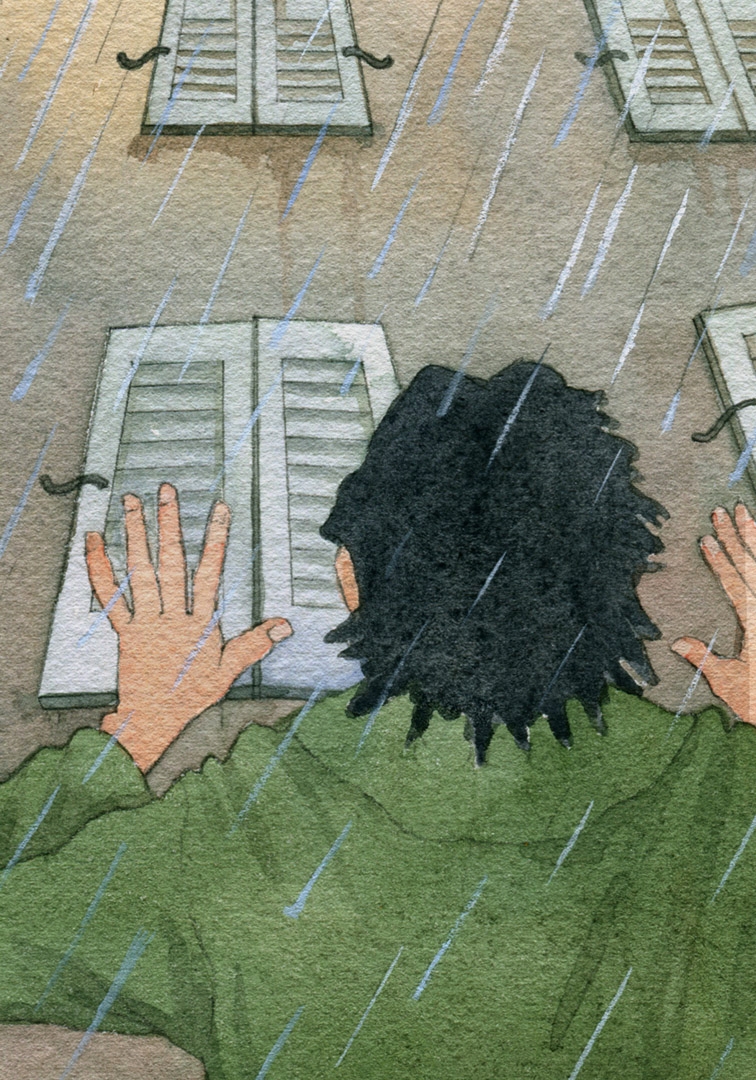
“Cosette! Cosette!” cried Marius in a loud voice.
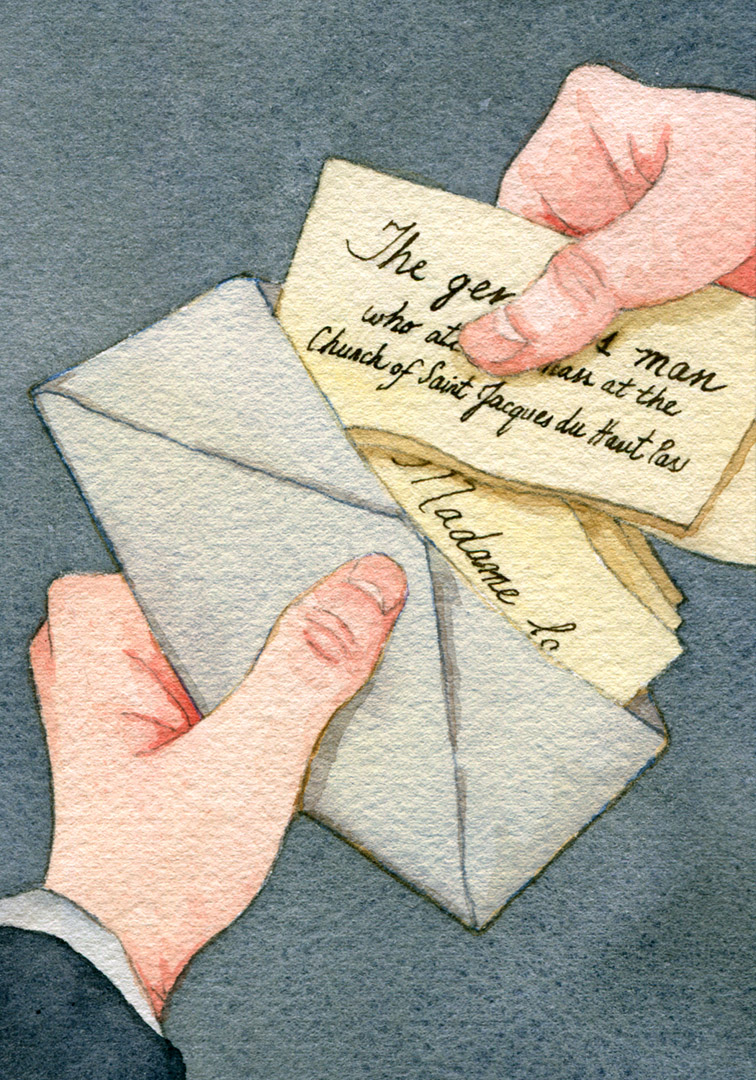
Back in his room, he took out the envelope that he had found.

Suddenly Marius noticed a small hole that he had never seen before.
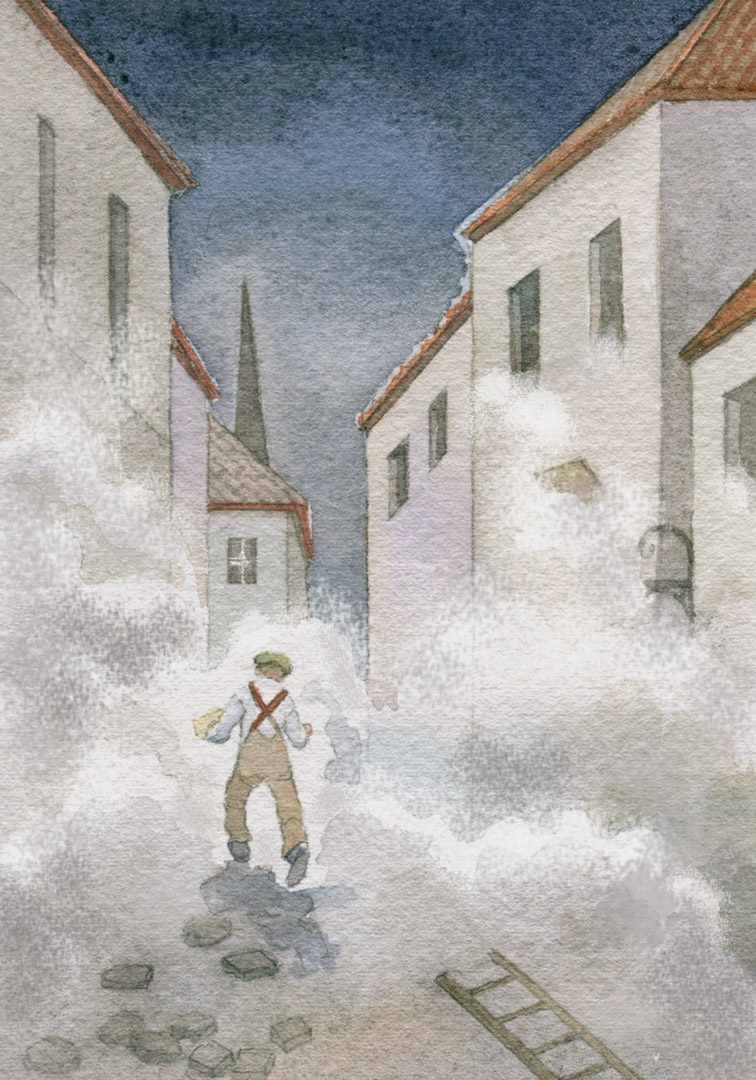
Gavroche took the letter and scampered away.

He wore a workingman’s waistcoat, brown linen trousers, and a cap with a large visor that hid his face.
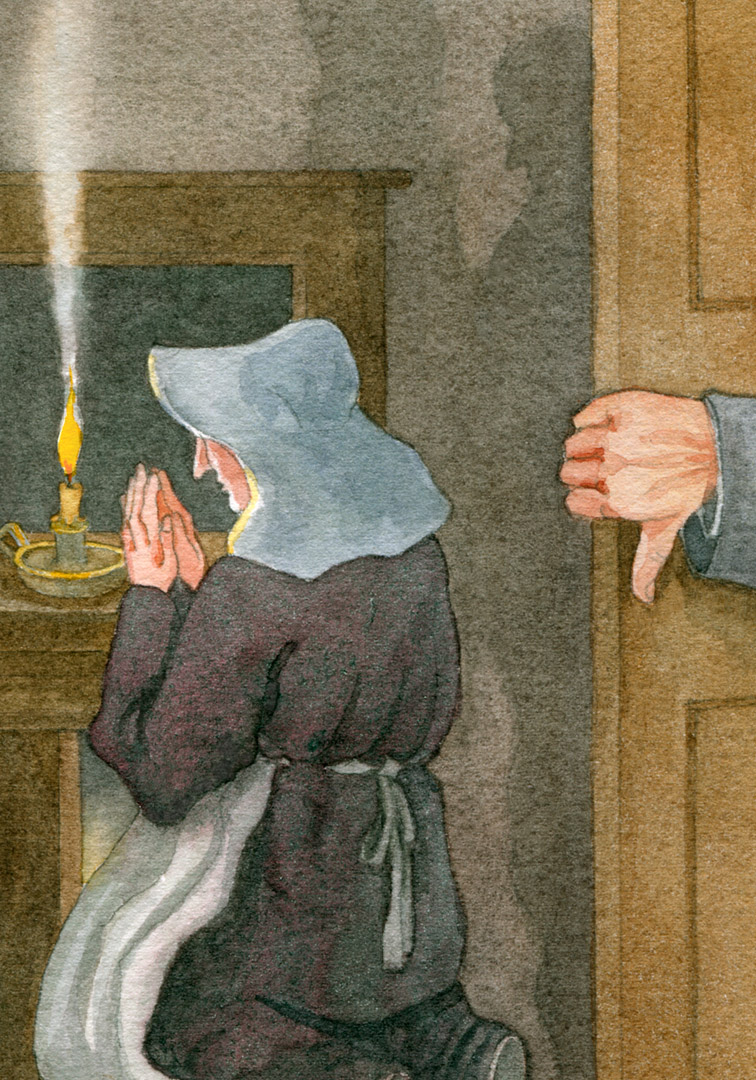
“Sister, Valjean has escaped and we’re looking for him. Have you seen him?”
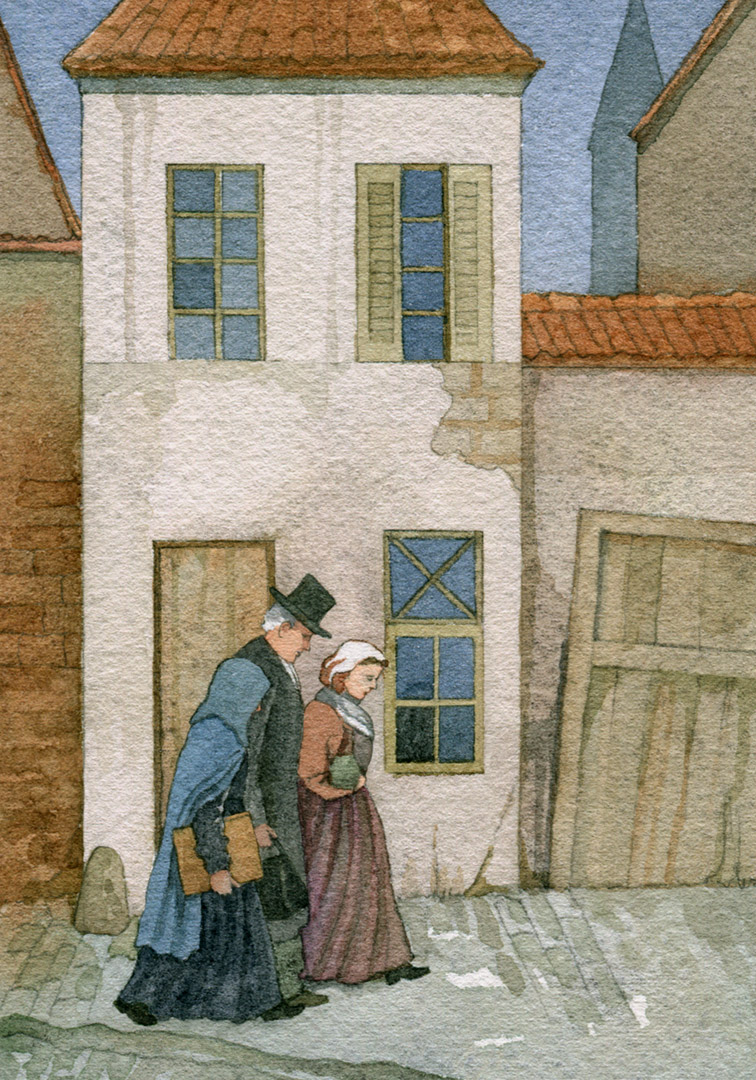
They arrived at their new home without speaking.
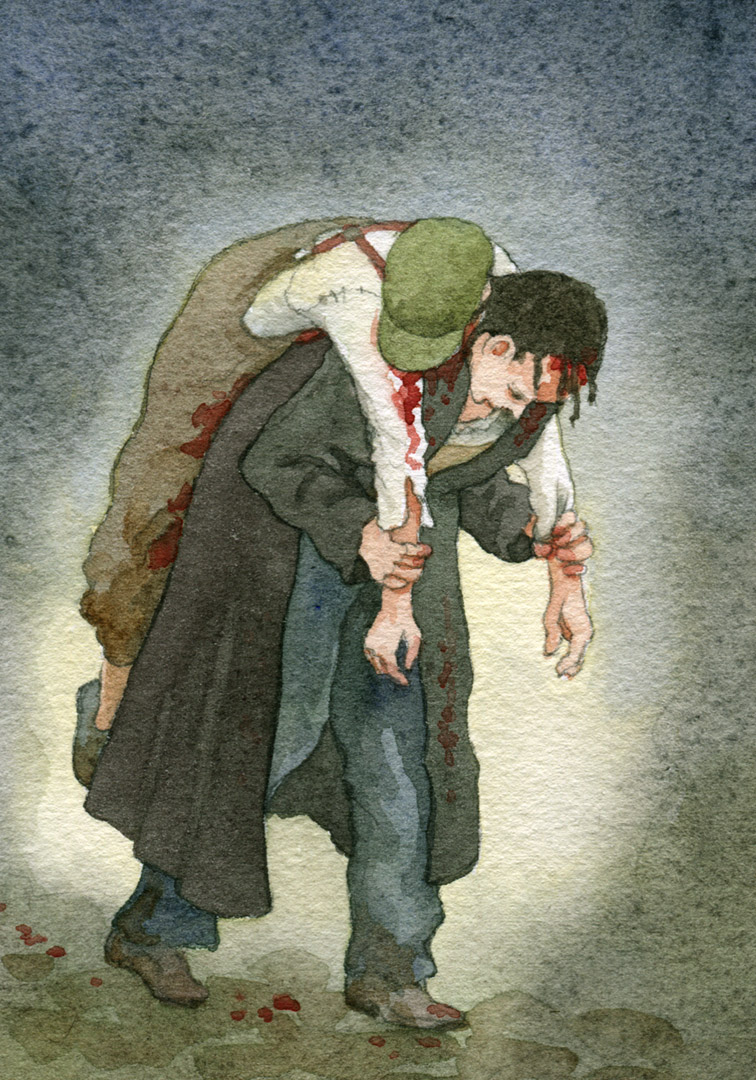
Gavroche had been killed—Marius carried his body.
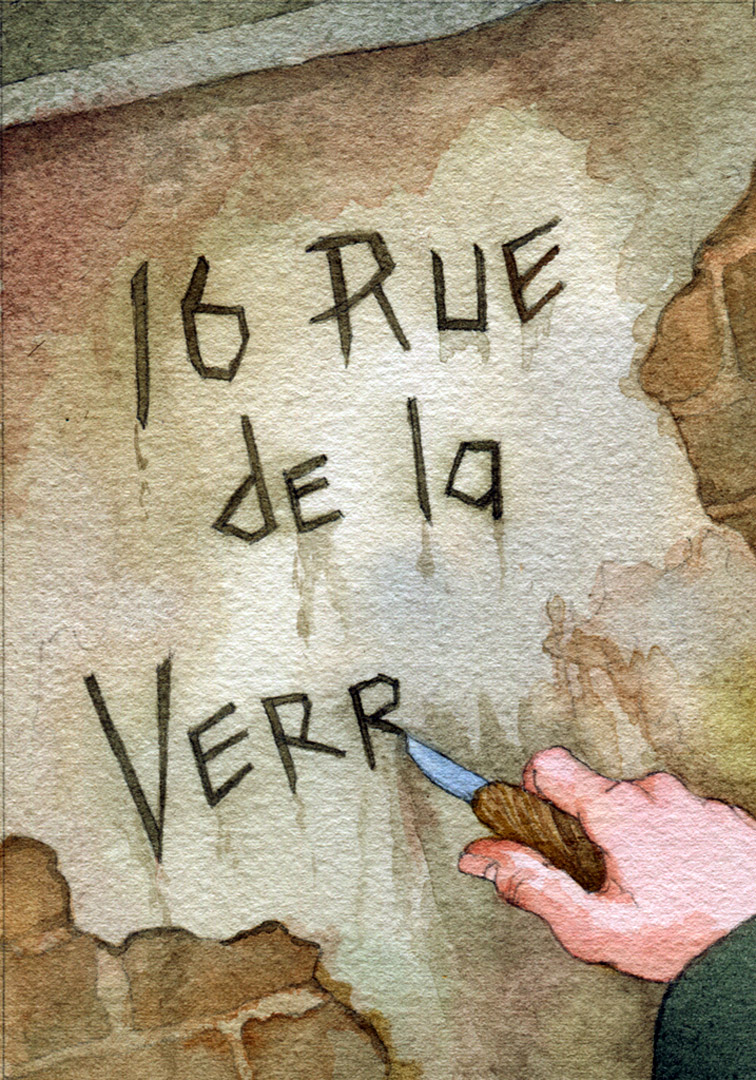
He took out his penknife and scratched the address on the garden wall.
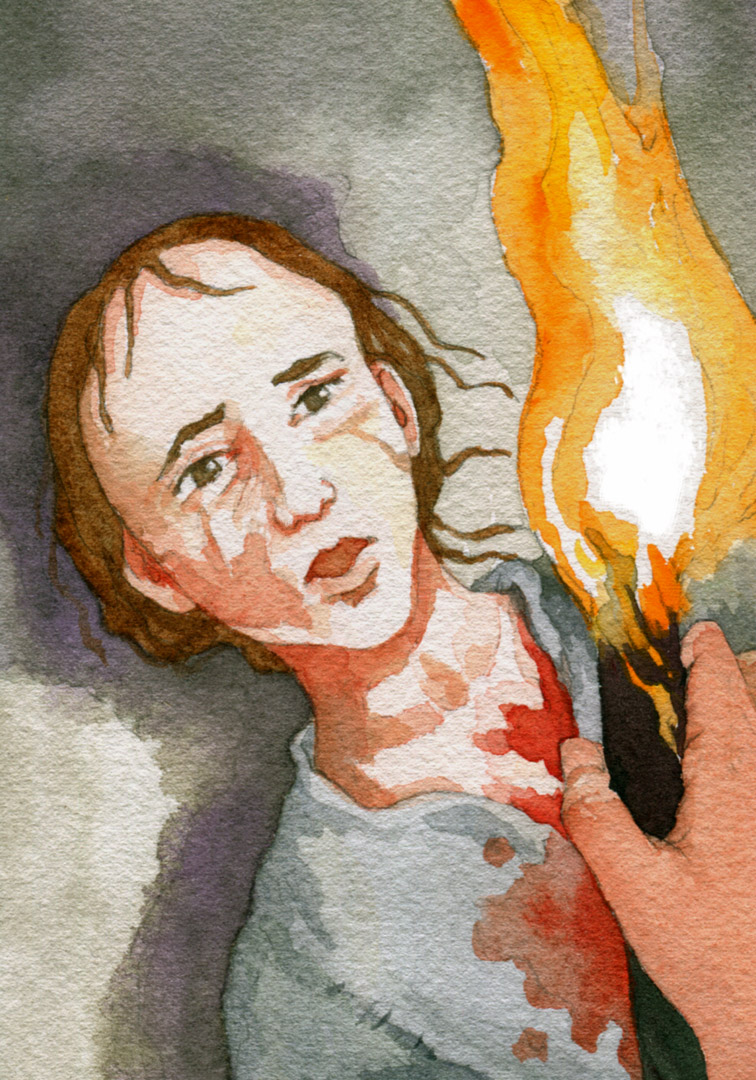
“The bullet entered my chest,” Eponine said weakly.
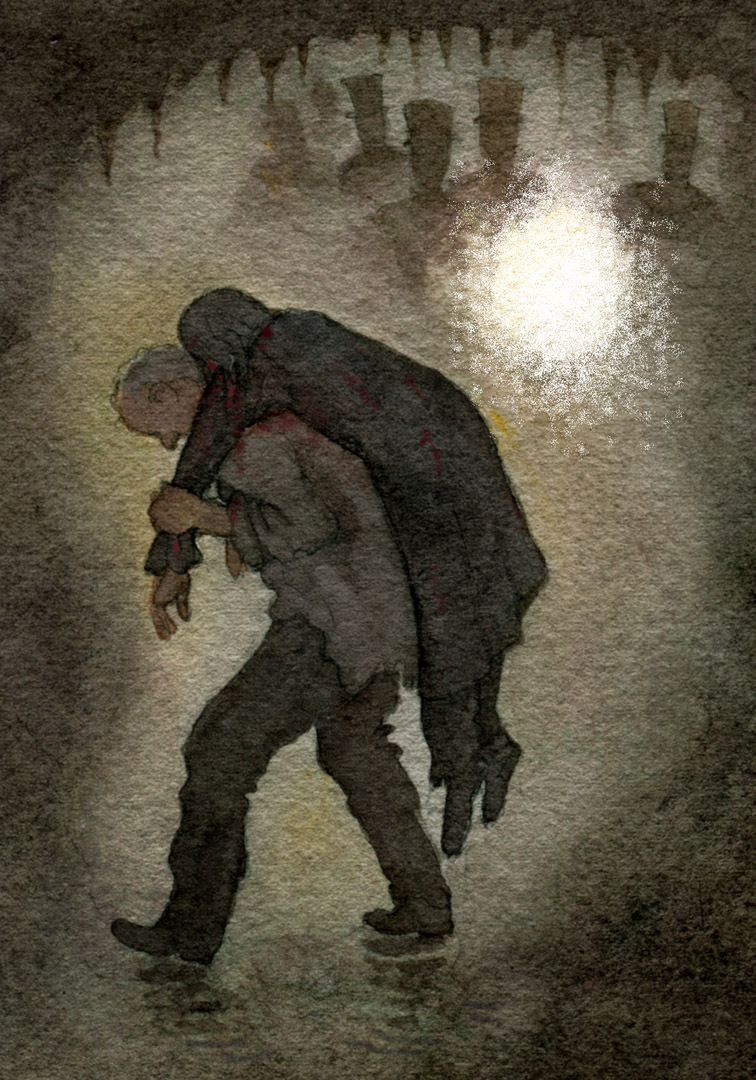
Luckily for Valjean, he could see the police better than they could see him.
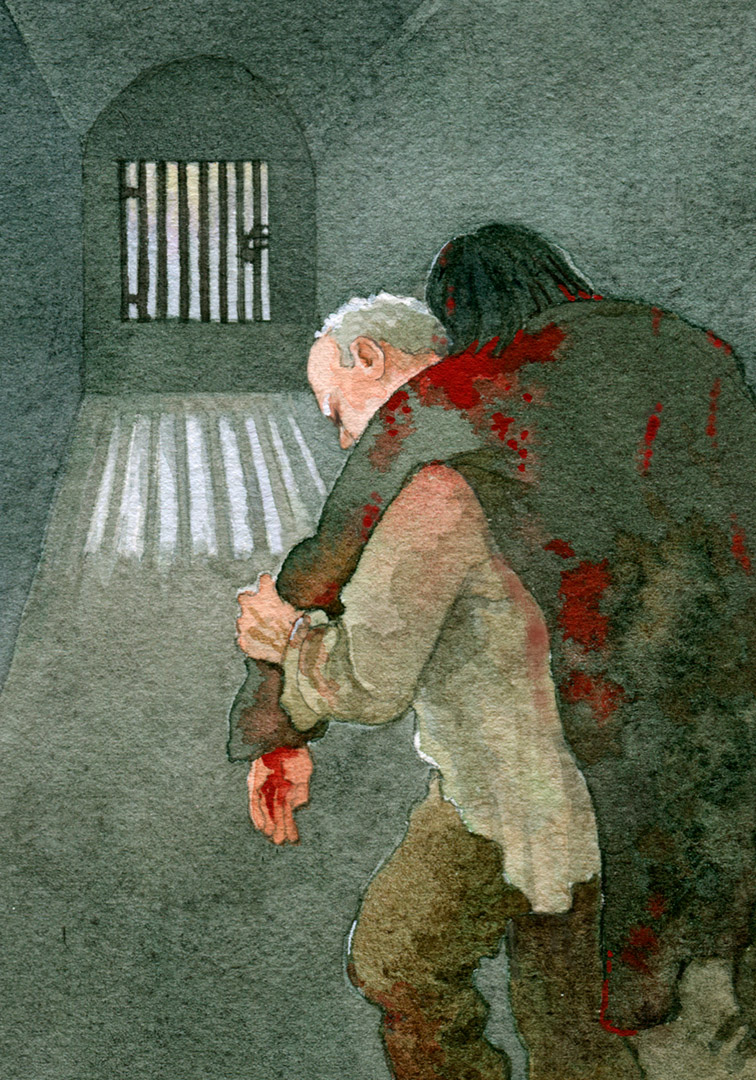
“It’s all over,” said Valjean. “We’re trapped in this place.”
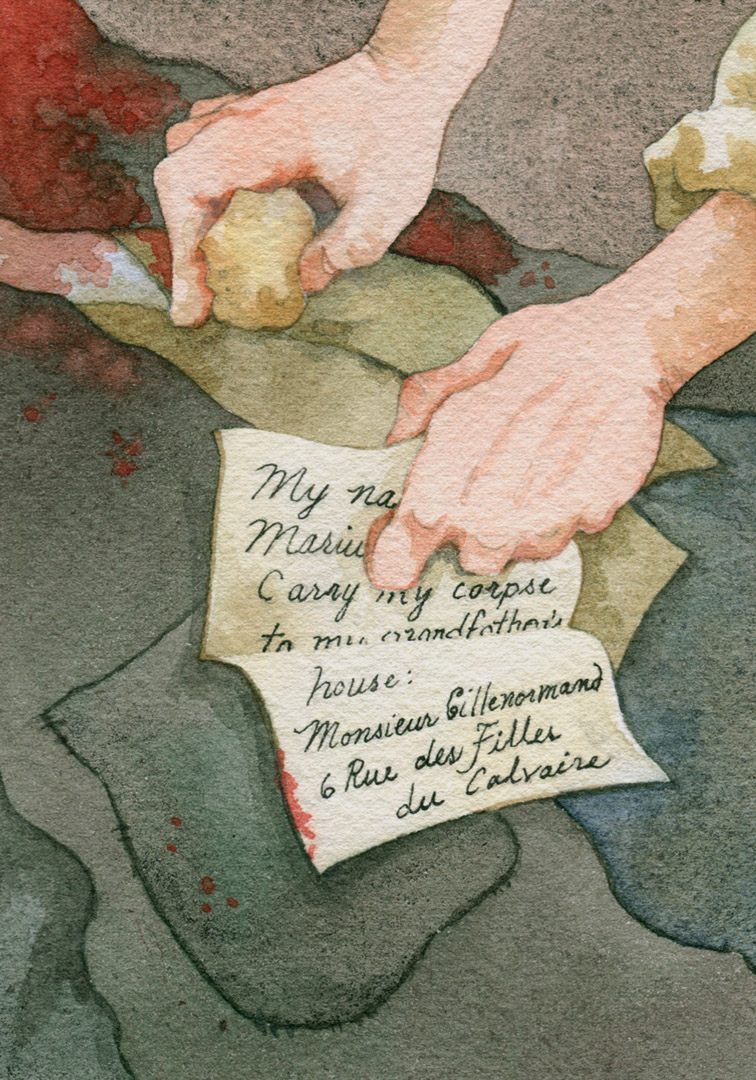
Valjean searched Marius’s pockets and found a scrap of bread to eat.
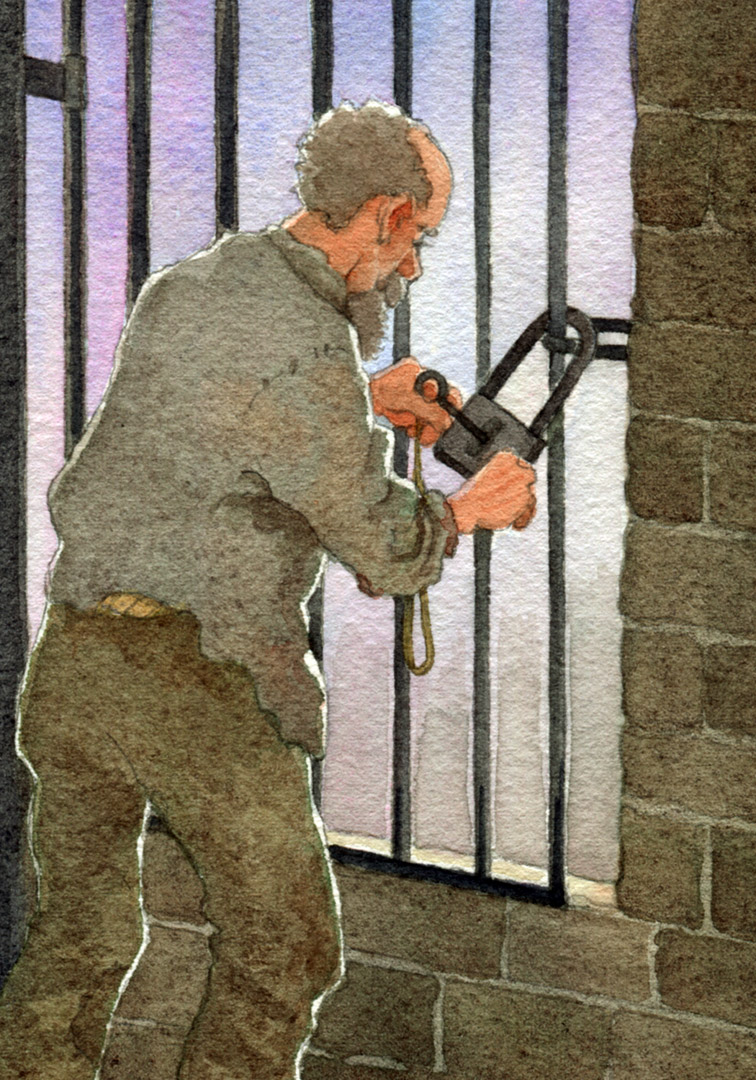
Without recognizing them, Thenardier put the key in the lock and opened the grate for Valjean.

This was the money that Valjean buried in the woods—whenever he needed money, he would disappear for a few days to dig up some cash.










































An hour before sunset in October 1815, a man traveling on foot entered a little town in France.
As they passed through the bishop’s room, Madame Magloire was putting away the silver in the cupboard behind the bed.
He walked through the town, stopping to ask for food and lodgings at a tavern, but no one would let him in.
“Never forget that you’ve promised me to use this silver to become an honest man.”
When the church clock chimed three on that morning, he was kneeling in prayer at the bishop’s door.
He fled from the bishop’s house and the town as fast as he could.
When her husband died, she had seven children ranging in age from one to eight.
Jean Valjean stole a loaf of bread for the children.
The door opened and there stood three policemen. One held Jean Valjean by his collar.
Cosette ate under the table with the dog and the cat.
Javert always kept an eye on Mayor Madeleine, an eye full of suspicion and speculation.
When the old man woke up the next morning, he found money on the bedside table.
The man rushed into the building and risked his life to save two children—the police chief’s children.
The Thenardiers reply was always the same: Cosette is doing wonderfully well.
She was a miserable sight to see in the winter, sweeping the sidewalk before daybreak.
“Take these and knock on that door over there.”
Suddenly the crowd cried out in horror. The convict had fallen into the sea!
“And, Cochepaille, you have a blue tattoo on your left arm with the date March 1, 1815.”
For five hours the mayor paced in front of the fire.
Throwing down the pen, she said, “Look at this!
Eponine entered the room with a candle and walked straight toward the bed—but she didn’t look under it.
As the man reached the stairs, he turned and Valjean saw his profile!
An officer ran to the window, where the rope ladder was still trembling. “He seems to have escaped, sir.”
“Cosette! Cosette!” cried Marius in a loud voice.
Back in his room, he took out the envelope that he had found.
Suddenly Marius noticed a small hole that he had never seen before.
Gavroche took the letter and scampered away.
He wore a workingman’s waistcoat, brown linen trousers, and a cap with a large visor that hid his face.
“Sister, Valjean has escaped and we’re looking for him. Have you seen him?”
They arrived at their new home without speaking.
Gavroche had been killed—Marius carried his body.
He took out his penknife and scratched the address on the garden wall.
“The bullet entered my chest,” Eponine said weakly.
Luckily for Valjean, he could see the police better than they could see him.
“It’s all over,” said Valjean. “We’re trapped in this place.”
Valjean searched Marius’s pockets and found a scrap of bread to eat.
Without recognizing them, Thenardier put the key in the lock and opened the grate for Valjean.
This was the money that Valjean buried in the woods—whenever he needed money, he would disappear for a few days to dig up some cash.
